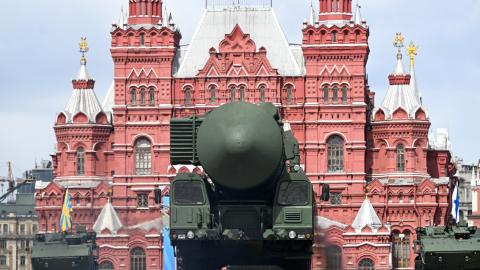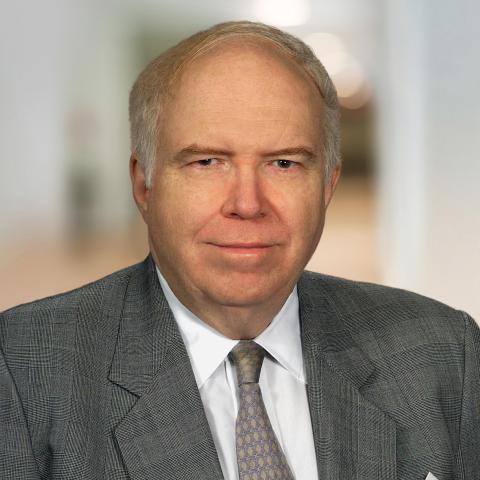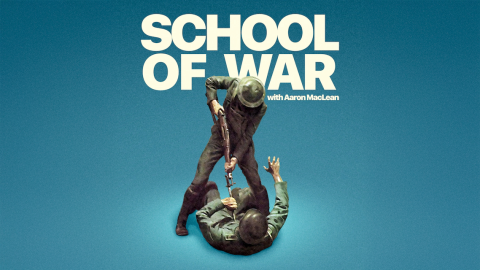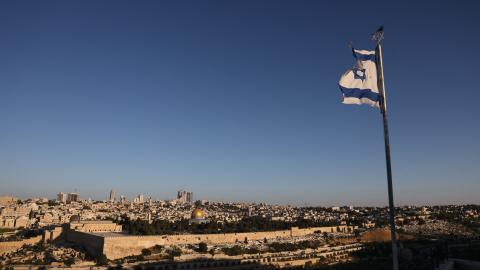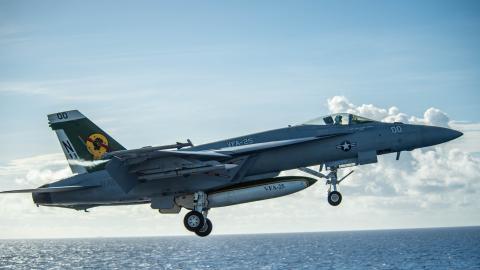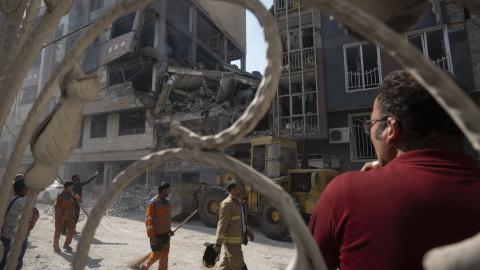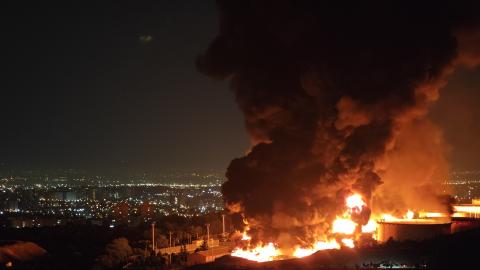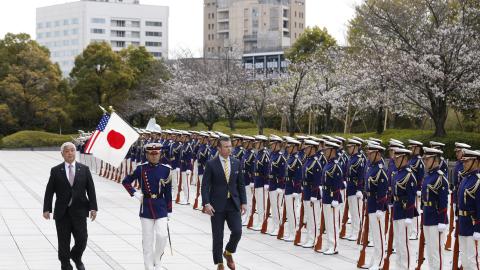Today Iranian foreign minister Mohamed Javad Zarif sent his condolences to Hezbollah general secretary Hassan Nasrallah on the day the party is burying Mustafa Badreddine. As one of Hezbollah’s top military commanders, Badreddine is believed to have played a role in the 1983 Marine barracks bombing, and then a few months later the bombing at the American embassy in Kuwait, where he was caught and sentenced to death.
The U.N.'s Special Tribunal for Lebanon indicted Badreddine for the 2005 assassination of the former prime minister of Lebanon, Rafik Hariri. Since 2011, Badreddine has been running Hezbollah's military operations in Syria, where alongside the Assad regime and its patron Iran, the party of God has waged a campaign of sectarian cleansing, killing hundreds of thousands.
Thus, for the Islamic Republic, the 55-year-old Badreddine was seen a hero. Zarif, who is seen by the Obama administration as a moderate, relayed to Nasrallah "that martyrdom of this great commander Mustafa will further strengthen resistance forces against the Zionist and terrorism."
Maybe Zarif is right, but it seems it was the forces of the Zionist that brought Badreddine down. He was reportedly killed by an Israeli strike near the Damascus airport, where, according to Iranian opposition press reports, he was visited by Quds Force commander, Qassem Suleimani shortly before he was assassinated. Badreddine was a major figure in the organization and member of an important Hezbollah family. He was the cousin and brother-in-law, as well as frequent accomplice of Imad Mughniyeh, Hezbollah's legendary terrorist mastermind who was assassinated in Damascus in 2008. Mughniyeh's son, and Badreddine's nephew, Jihad, was killed by an Israeli strike on the Syrian side of the Golan Heights in 2015. It would appear that even Hezbollah princes are vulnerable in Syria.
For more background on Badreddine and his record, see this 2013 Weekly Standard interview with Matthew Levitt, author of Hezbollah: The Global Footprint of Lebanon's Party of God. For background on Hezbollah's relationship with Iran, this 2013 Weekly Standard article by Tony Badran, research fellow at Foundation for Defense of Democracies, is the definitive account of the early years,
Badran added an additional note today:
"Mustafa Badreddine is the third senior Hezbollah commander of the first generation of Hezbollah cadres to be killed in the last decade. Imad Mughniyeh was killed in Damascus in 2008. Their comrade, Hassan Laqqis, was shot outside his apartment in Beirut in 2013. What these three figures have in common is their involvement in the 1983 Marine barracks bombing in Beirut. The roles of Mughniyeh and Badreddine role in this operation are well known, and there is some evidence Laqqis was involved as well. In his eulogy of Laqqis, Iran's Defense Minister Hossein Dehghan noted that Laqqis was his bureau chief when Dehghan headed the Islamic Revolutionary Guards Corps in Lebanon in 1983. Hence, as Israeli Hezbollah expert Shimon Shapira noted, it's reasonable to conclude that Laqqis, like Dehghan, "played an active role in the planning and execution" of the Marine barracks bombing.
"In other words, if Israel is indeed behind Badreddine's death, it will have killed three senior Hezbollah leaders involved in the murder of 241 Americans killed in Beirut on October 23, 1983. The Obama administration, on the other hand, is realigning American regional interests with the Iranian regime responsible for those attacks."
